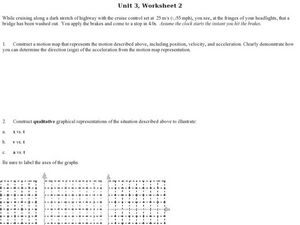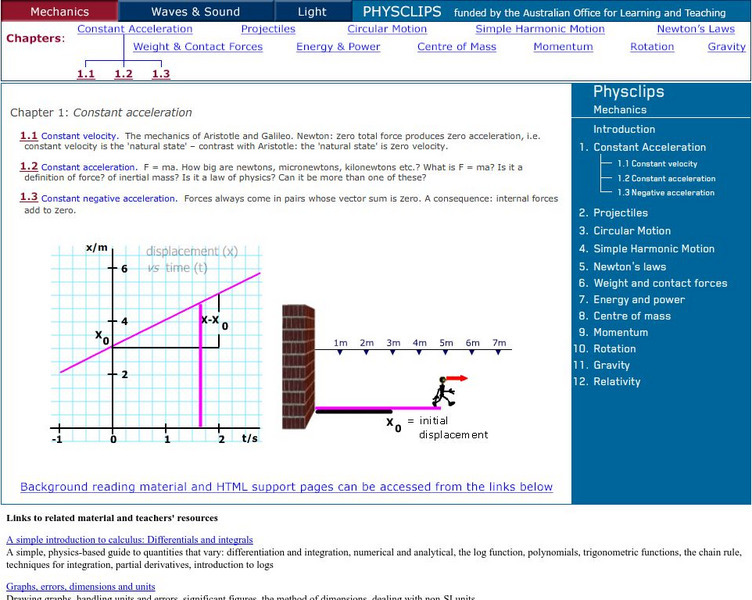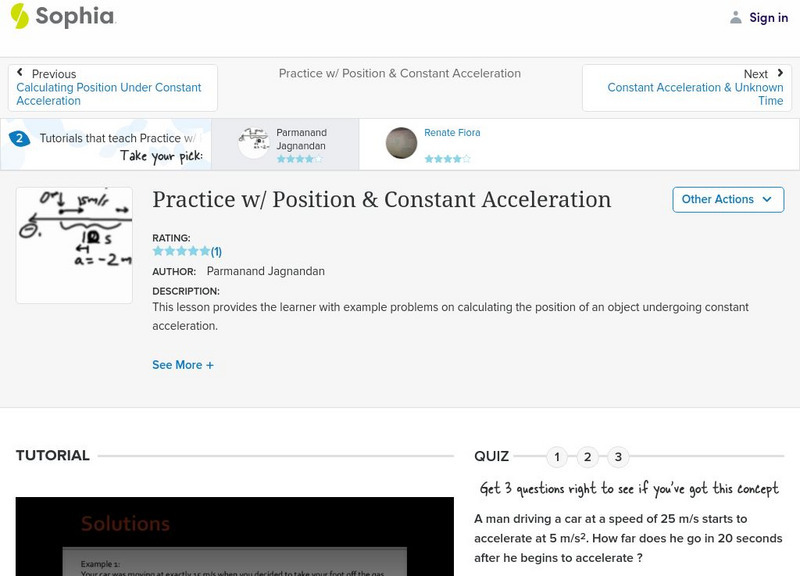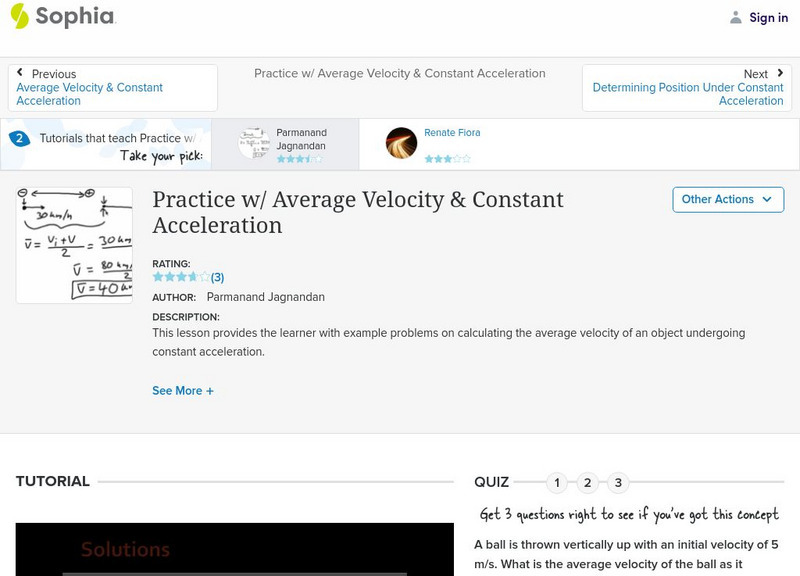Rice University
College Physics for AP® Courses
Take a look at an organized physics course. The 34-section electronic textbook covers material in AP® Physics 1 and 2. Teachers use the text to supplement lectures and have the class work through the labs. Each section contains...
CK-12 Foundation
Irwin and Ruthie
Learners compare acceleration to displacement through an interactive tutorial that permits them to adjust the running strategy of two robots and watch them race. A graph displays the robot's velocity over time and another shows their...
Teach Engineering
Android Acceleration
Prepare to accelerate your Android. Pupils prep for the upcoming activity in this third installment of a four-part series. The lesson progresses nicely by first introducing different types of acceleration to the class. The teacher...
InqueryPhysics
Interpreting Motion Graphs
Every movement in the world can be measured and even motionless objects can be significant indicators of movement. Focus on motion graphs that feature distance vs. time, speed vs. time, and positive and negative acceleration.
Curated OER
Acceleration and Velocity
For this acceleration worksheet, students construct a motion map and a qualitative and quantitative graphical representation to determine the motion of a car after it applies its brakes. This worksheet has 8 problems to solve.
Curated OER
Investigating Force, Acceleration and Velocity
In this Investigating force, acceleration and velocity worksheet, students read story problems involving constant velocity and acceleration, create a diagram of the problem, and consider the forces acting upon the item discussed. They...
University of New South Wales (Australia)
University of New South Wales: School of Physics: Physclips
Physiclips thoroughly presents mechanics concepts with animations and film clips.
CK-12 Foundation
Ck 12: Acceleration Due to Gravity
[Free Registration/Login may be required to access all resource tools.] In this module, students will explore the concept of gravity, and be able to use it to perform calculations using constant acceleration.
Khan Academy
Khan Academy: What Are the Kinematic Formulas?
Featured are the kinematic formulas or main equations you can use to analyze situations with constant acceleration.
Texas Education Agency
Texas Gateway: Motion Equations for Constant Acceleration in One Dimension
By the end of this section, you will be able to do the following: Calculate displacement of an object that is not accelerating, given initial position and velocity; Calculate final velocity of an accelerating object, given initial...
Physics Classroom
The Physics Classroom: Acceleration
Topics covered include what acceleration is, the difference between constant and non-constant acceleration, acceleration in a free-falling object, the equation used to compute acceleration, and the difference between positive and...
Texas Instruments
Texas Instruments: Constant Acceleration
This activity assesses students' knowledge and understanding of constant acceleration.
CK-12 Foundation
Ck 12: Plix Series: Uniform Acceleration
[Free Registration/Login Required] Using the average acceleration formula, calculate the velocity of a falling ball, and then check your answer by dragging the point along the line in the given graph. After the activity, answer one...
CK-12 Foundation
Ck 12: Physics: Uniform Acceleration
[Free Registration/Login may be required to access all resource tools.] Provides a definition for uniform acceleration and the formulas relating initial velocity, final velocity, time, and acceleration. Includes interactive simulation.
Sophia Learning
Sophia: Practice W/ Position & Constant Acceleration: Lesson 1
This lesson provides the learner with example problems on calculating the position of an object undergoing constant acceleration. It is 1 of 2 in the series titled "Practice w/ Position & Constant Acceleration."
Sophia Learning
Sophia: Practice W/ Average Velocity & Constant Acceleration: Lesson 1
This lesson provides the learner with example problems on calculating the average velocity of an object undergoing constant acceleration. It is 1 of 2 in the series titled "Practice w/ Average Velocity & Constant Acceleration."
















